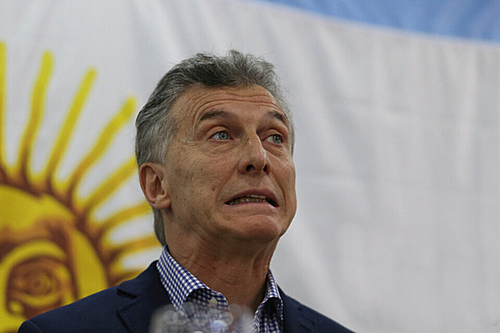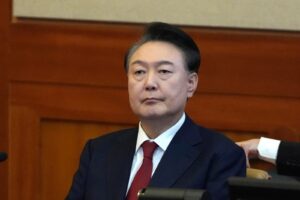
The loan granted by the International Monetary Fund (IMF) to Argentina in 2018 exceeded 127 times the debt capacity that the country would have with the financial body. This was one of the conclusions of the report of the General Audit of the Nation (AGN), released on the night of this Wednesday (17), which points to a series of irregularities in the loan process agreed with the government of former Argentine president Mauricio Macri (Proposal Republican).
Responsible for controlling the legality and management of state activity, the AGN focused its investigation on procedures that would guarantee efficient and effective debt management. The college highlighted the importance of this study because it was “an extraordinary and exceptionally high loan”, having been the highest in the history of Argentina and the IMF itself.
:: Peronism has a wide advantage in the provincial elections and the ultra-right does not exceed 15% ::
The amount granted was 57 billion dollars, of which “only” 44,867 billion dollars were disbursed, almost 45 billion dollars.
International norms and practices were evaluated; efficiency, transparency and effectiveness; responsible debt; and debt solvency and sustainability.
The audit report highlighted “relevant normative non-compliance, such as the lack of authorization for the debt, the failure to apply specific processes for multilateral loans, the lack of an opinion from the Central Bank of the Republic of Argentina on the impact of the operation on the balance of payments and the signature of the Agreement by officials without legal powers to do so”.
As the first point highlighted by the study, the agreement with the IMF was signed by the then Minister of Finance, Nicolás Dujovne, without legal powers to manage or authorize the public debt. Who should do it would be the Ministry of Finance, Luis Caputto.
The Macri government’s agreement with the IMF, according to AGN, also violated article 61 of the Financial Administration Law, which establishes that the Central Bank must issue an assessment of risks and impacts on the balance of payments before contracting an external debt. In addition, it also noted the absence of a decree or vote in the National Congress approving the multilateral loan, as provided for by law.
With regard to the destination of the amount executed by the Macri government, the report estimates that 70% of the money was used to cancel debts and 30% was destined to the formation of foreign assets, a phenomenon better known as capital flight – that is, the withdrawal of foreign exchange in the country.
political agreement
The news resonates in the country as confirmation that Macri’s understanding with the IMF was a political agreement, exceeding the country’s laws and even the Fund’s rules. Vice President Cristina Kirchner shared the video published by AGN, summarizing the study’s conclusions.
“It is not the opinion of a political party or an opposing leader, it is the result of the report approved by the Auditor General of the Nation that details an enormous number of violations of the law committed in the granting and subsequent execution of the loan from the International Monetary Fund”, he wrote. Kirchner. “It’s scandalous what they did and what happened!” he concluded.
IMF Agreement. First part.
What you are going to see and hear in this 5:16 minute video is not the opinion of a political party or an opposition leader, it is the result of the report approved by the National Audit Office that details the enormous number of violations to … pic.twitter.com/0hX7Jkm2v1
— Cristina Kirchner (@CFKArgentina) May 18, 2023
The report reinforces something that the IMF itself had assumed in 2021 regarding the loan to Argentina. At the request of President Alberto Fernández, who succeeded Macri, the IMF carried out an internal investigation in which it concluded that “the program did not meet its objectives” and recognizes that “the increase in reimbursements, together with the flight of capital by residents, exerted considerable pressure on the exchange rate”, that is, the increase in the dollar and the devaluation of the national currency, the Argentine peso.
The findings of IMF officials summarized in the internal document, however, are a formality, and do not interfere with Argentina’s settlement process and debt payment requirements.
Editing: Nicolau Soares
Source: www.brasildefato.com.br

